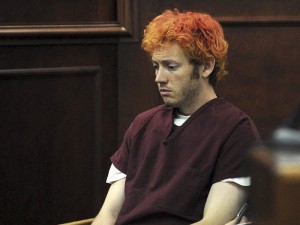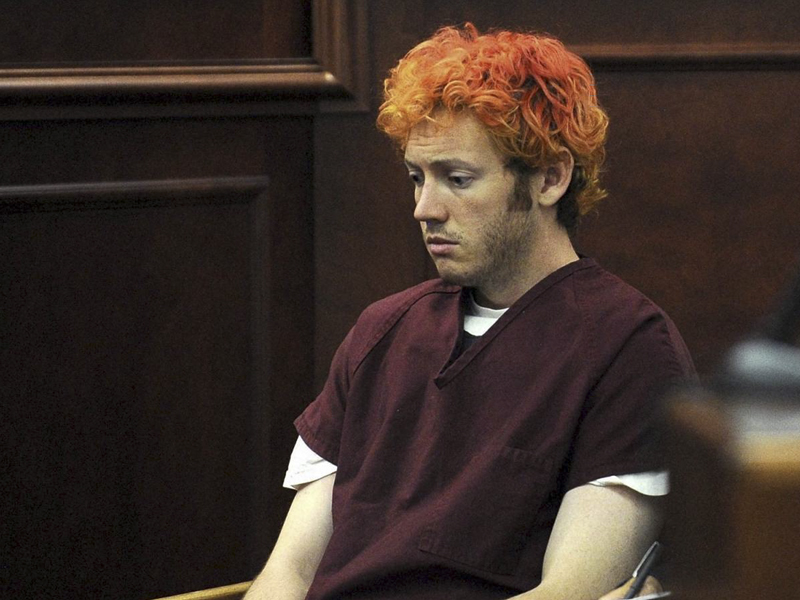
It was July 20, 2012: the opening night of the world-renowned film “The Dark Knight Rises.” An event that should have been a fun-filled Friday night turned into a blood-soaked nightmare that will forever live in infamy. 12 innocent lives were taken, and 58 individuals suffered injuries at the hands of James Holmes on that grisly, horrifying night in Aurora, Colo.
Now, nine months after the massacre, Holmes has been faced with the possibility of execution. Who knows how long it will take for the controversial decision to be carried out, but why are we asking this question in the first place? Based upon the excruciating damage inflicted upon the community of Aurora, some may argue that Holmes can be justifiably executed. However, Holmes should not be put to death, and the death penalty should not be enacted in any situation.
The cost alone of capital punishment should be enough for all states to discontinue the practice. Specifically, the death penalty costs 17 percent more than imprisoning an inmate in the state of Colorado, due to the increased costs of a longer trial and additional security associated with seeking the death penalty. On average, the death penalty costs one million dollars more than life imprisonment without parole. The average cost of the defendant receiving the death penalty is eight times that of the cases in which the death penalty is not handed down by the court.
Currently, taxpayers already pay more for incarceration than for education alone in the United States. Ed Barnes from Fox News has even compared the cost of the death penalty to the possibility of closing down a school. If we continue to pay the prison system for more executions in cases similar to Holmes’, funds will be diverted from students, teachers, healthcare, and social services. It could even result in an increase in taxes. This overview of the costly nature of capital punishment broadly explains just how dangerous this decision is for the financial future of the United States.
Now, as far as finances go, many people are probably not necessarily concerned with the amount they are paying to serve justice to those they believe deserve to die. In the case of Holmes, many individuals want him to truly pay the price for the crimes he committed. However, Holmes is not the first individual convicted of mass murder, and certainly will not be the last. If this process is inflicted on other criminals, this money cannot be used for other important services.
Though Holmes has exhibited “hostile” behavior while incarcerated at the Arapahoe Detention Center in Centennial, Colo., he is currently being held in solitary confinement in order to deter his potentially dangerous behavior. Holmes’ conduct has proved to be rather disturbing as a result of his spitting at the guards, questioning his imprisonment and complaining about the food served.
Despite his troubling actions, Holmes has neither been a serious threat to the prison guards nor to the other inmates. Therefore, there is no reason to put him to death because he does not pose a dangerous threat to Arapahoe, or even to the rest of the country. The death penalty is too expensive and lengthy to be considered as a viable option. Life imprisonment without the possibility of parole is a better choice.
In addition to the high price for execution, capital punishment in general also involves the unfortunate issue of sentencing innocent individuals to death. There have been at least 39 cases of wrongful execution in the United States, in which there was highly reasonable doubt of the defendant’s guilt. An example is Johnny Garrett, who was wrongly convicted of murder and rape, and was unfairly executed in 1992. Garrett was later found to be innocent through DNA evidence in 2004.
Illegitimate executions are morally wrong simply because it is the act of the taking the life of an innocent person. More than 39 lives were mistakenly taken. If there have been 39 false executions carried out in the United States, why do we continue to allow the death penalty to happen? There is always a possibility of the defendant’s innocence, but once we kill them, we cannot reverse the act if evidence has proven against their guilt.
Relating back to the cost of capital punishment, these were 39 cases where the various states had to spend millions of extra dollars to carry out these sentences. Not only is this morally unethical, but a great financial loss for the United States.
In relation to convicts like Holmes, death should not be the solution. It may initially seem like the best choice, but the process and costs are long, arduous, and expensive. All the funds spent on death row inmates could be saved for other necessities for the state of Colorado, and the rest of the country.
It is not up to the public, but up to the courts to determine the fate of all convicted individuals. However, in the case of the death sentence, the courts should realize the best alternative is life in prison without the possibility of parole. Because of the lengthy process of determining the possible innocence of the convict, capital punishment costs much more than simply leaving the felon in prison for the rest of his or her life.
The decision to argue in favor of Holmes’ execution was decided just on Apr. 1, nearly one year after the shooting. However, the trial for this sentence will not begin until February 2014, and the decision could take at least five months after that. Holmes’ lengthy trial is not the first, but this case alone could deeply affect the Colorado state budget.
Given all the costs presented, should Colorado spend so much time and taxpayer money on this one case? More situations like these could happen in the future which could cost just as much, or even more than Holmes’ trial. The state of Colorado should not resort to the long and difficult process of the death penalty, but rather choose life imprisonment without parole.








